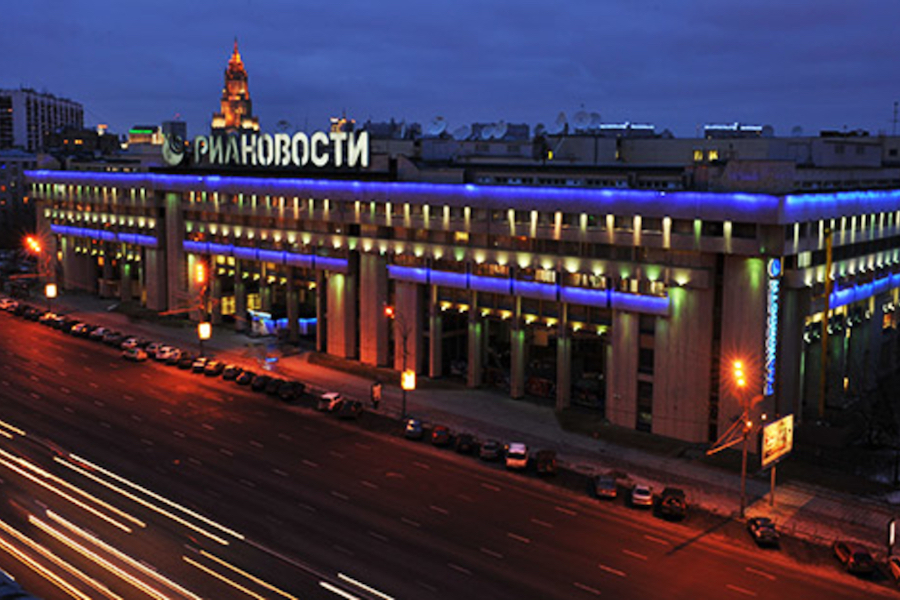
Media
RIP RIA Novosti: Putin Rearranges Russia’s Media Landscape
In an effort to consolidate Russian news agencies, the Kremlin has dissolved RIA Novosti and the Voice of Russia. Both agencies will be absorbed into Rossiya Segodnya (Russia Today), a newly created media conglomerate. Dmitry Kiselyov, a pro-Kremlin television host, made famous for comparing Alexei Navalny’s supporters to Nazis, airing homophobic slurs on air and suggesting that the recent protests in Kiev are the work of the United States and Western governments, will head the new media venture. Sergei Ivanov, Putin’s chief of staff, said that the decision to close RIA Novosti rested on the economics of the agency and it’s inability to articulate the Kremlin’s policies more thoroughly.
“Russia has its own independent politics and strongly defends its national interests: it’s difficult to explain this to the world but we can do this, and we must do this,” Ivanov said. “We must tell the truth, make it accessible to the most people possible and use modern language and the best available technologies in doing so.” Many RIA Novosti readers [myself included] would suggest that RIA Novosti did just that.
It’s not exactly clear how Rossiya Segodnya will differ from RT, the government funded English-language television channel previously called Russia Today. Ostensibly both now will carry pro-Kremlin messaging highly critical of the United States and Europe.
RIA Novosti, reporting on its closure, speculated, “the latest in a series of shifts in Russia’s news landscape, which appear to point toward a tightening of state control in the already heavily regulated media sector.”
The closure of RIA Novosti is probably the most unfortunate for Russians seeking independent news coverage separate from RT and other Kremlin friendly news sources. Founded by Joseph Stalin in the early 1940s, RIA Novosti has reporters covering dozens of countries with what many consider top rated news coverage, which has been, for the most part, unbiased. It’s unlikely that Rossiya Segodnya will build itself up from scratch. The new venture will be housed in RIA Novosti’s offices in central Moscow, which will also include what was formerly the Voice of Russia and inevitably many of the former employees of RIA Novosti.
RIA Novosti’s closure follows soon after Gazprom-Media’s purchase of Profmeda, a company owned by billionaire Vladimir Potanin. Mikhail Lesin, a Kremlin ally was named to head Gazprom-Media.
The news of RIA Novosti’s demise was welcomes by at least one Putin supporter and probably many more who consider RIA Novosti’s news coverage to be less than fair to Putin. “The destruction of RIA Novosti is a welcome step from Putin. The systemic nest of anti-Russian information forces has been destroyed,” tweeted Maxim Shevchenko, a pro-Kremlin television host.
Anti-Kremlin activist Alexei Navalny described his initial reaction when he first heard of RIA Novosti’s closure as a “joke.” He wrote on his blog, “State propaganda should have its own face and Kiselyov is ideal.” And Vladimir Varfolomeyev tweeted, “We are getting closer and closer to total censorship. They will deal with smaller media even more shamelessly.”
And one unnamed RIA Novosti employee upon hearing the news suggested, “The agency has crumb by crumb built up a reputation for professionalism and trustworthiness. But that’s not fashionable in the current climate. The fashion now is to suck up [to the government].”
The restructuring of Russia’s media landscape is just in time for the Sochi Olympics, when the Kremlin hopes coverage of the Olympics goes off without a hitch.

